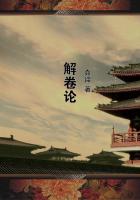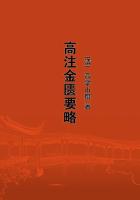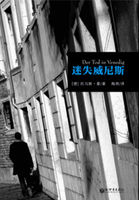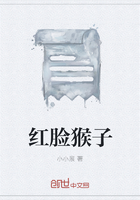Now, while I am upon this subject, and as Henry Clay has been alluded to, I desire to place myself, in connection with Mr. Clay, as nearly right before this people as may be. I am quite aware what the Judge's object is here by all these allusions. He knows that we are before an audience having strong sympathies southward, by relationship, place of birth, and so on. He desires to place me in an extremely Abolition attitude. He read upon a former occasion, and alludes, without reading, to-day to a portion of a speech which I delivered in Chicago. In his quotations from that speech, as he has made them upon former occasions, the extracts were taken in such a way as, I suppose, brings them within the definition of what is called garbling, --taking portions of a speech which, when taken by themselves, do not present the entire sense of the speaker as expressed at the time. I propose, therefore, out of that same speech, to show how one portion of it which he skipped over (taking an extract before and an extract after) will give a different idea, and the true idea I intended to convey. It will take me some little time to read it, but I believe I will occupy the time that way.
You have heard him frequently allude to my controversy with him in regard to the Declaration of Independence. I confess that I have had a struggle with Judge Douglas on that matter, and I will try briefly to place myself right in regard to it on this occasion. I said--and it is between the extracts Judge Douglas has taken from this speech, and put in his published speeches:
"It may be argued that there are certain conditions that make necessities and impose them upon us, and to the extent that a necessity is imposed upon a man he must submit to it. I think that was the condition in which we found ourselves when we established this government. We had slaves among us, we could not get our Constitution unless we permitted them to remain in slavery, we could not secure the good we did secure if we grasped for more; and having by necessity submitted to that much, it does not destroy the principle that is the charter of our liberties. Let the charter remain as our standard."
Now, I have upon all occasions declared as strongly as Judge Douglas against the disposition to interfere with the existing institution of slavery. You hear me read it from the same speech from which he takes garbled extracts for the purpose of proving upon me a disposition to interfere with the institution of slavery, and establish a perfect social and political equality between negroes and white people.
Allow me while upon this subject briefly to present one other extract from a speech of mine, more than a year ago, at Springfield, in discussing this very same question, soon after Judge Douglas took his ground that negroes were, not included in the Declaration of Independence:
"I think the authors of that notable instrument intended to include all men, but they did not mean to declare all men equal in all respects. They did not mean to say all men were equal in color, size, intellect, moral development, or social capacity. They defined with tolerable distinctness in what they did consider all men created equal,--equal in certain inalienable rights, among which are life, liberty, and the pursuit of happiness. This they said, and this they meant. They did not mean to assert the obvious untruth that all were then actually enjoying that equality, or yet that they were about to confer it immediately upon them. In fact they had no power to confer such a boon. They meant simply to declare the right, so that the enforcement of it might follow as fast as circumstances should permit.
"They meant to set up a standard maxim for free society which should be familiar to all,--constantly looked to, constantly labored for, and even, though never perfectly attained, constantly approximated, and thereby constantly spreading and deepening its influence, and augmenting the happiness and value of life to all people, of all colors, everywhere."
There again are the sentiments I have expressed in regard to the Declaration of Independence upon a former occasion,--sentiments which have been put in print and read wherever anybody cared to know what so humble an individual as myself chose to say in regard to it.
At Galesburgh, the other day, I said, in answer to Judge Douglas, that three years ago there never had been a man, so far as I knew or believed, in the whole world, who had said that the Declaration of Independence did not include negroes in the term "all men." I reassert it to-day. I assert that Judge Douglas and all his friends may search the whole records of the country, and it will be a matter of great astonishment to me if they shall be able to find that one human being three years ago had ever uttered the astounding sentiment that the term "all men" in the Declaration did not include the negro.
Do not let me be misunderstood. I know that more than three years ago there were men who, finding this assertion constantly in the way of their schemes to bring about the ascendency and perpetuation of slavery, denied the truth of it. I know that Mr. Calhoun and all the politicians of his school denied the truth of the Declaration. I know that it ran along in the mouth of some Southern men for a period of years, ending at last in that shameful, though rather forcible, declaration of Pettit of Indiana, upon the floor of the United States Senate, that the Declaration of Independence was in that respect "a self-evident lie," rather than a self-evident truth. But I say, with a perfect knowledge of all this hawking at the Declaration without directly attacking it, that three years ago there never had lived a man who had ventured to assail it in the sneaking way of pretending to believe it, and then asserting it did not include the negro. I believe the first man who ever said it was Chief Justice Taney in the Dred Scott case, and the next to him was our friend Stephen A.

